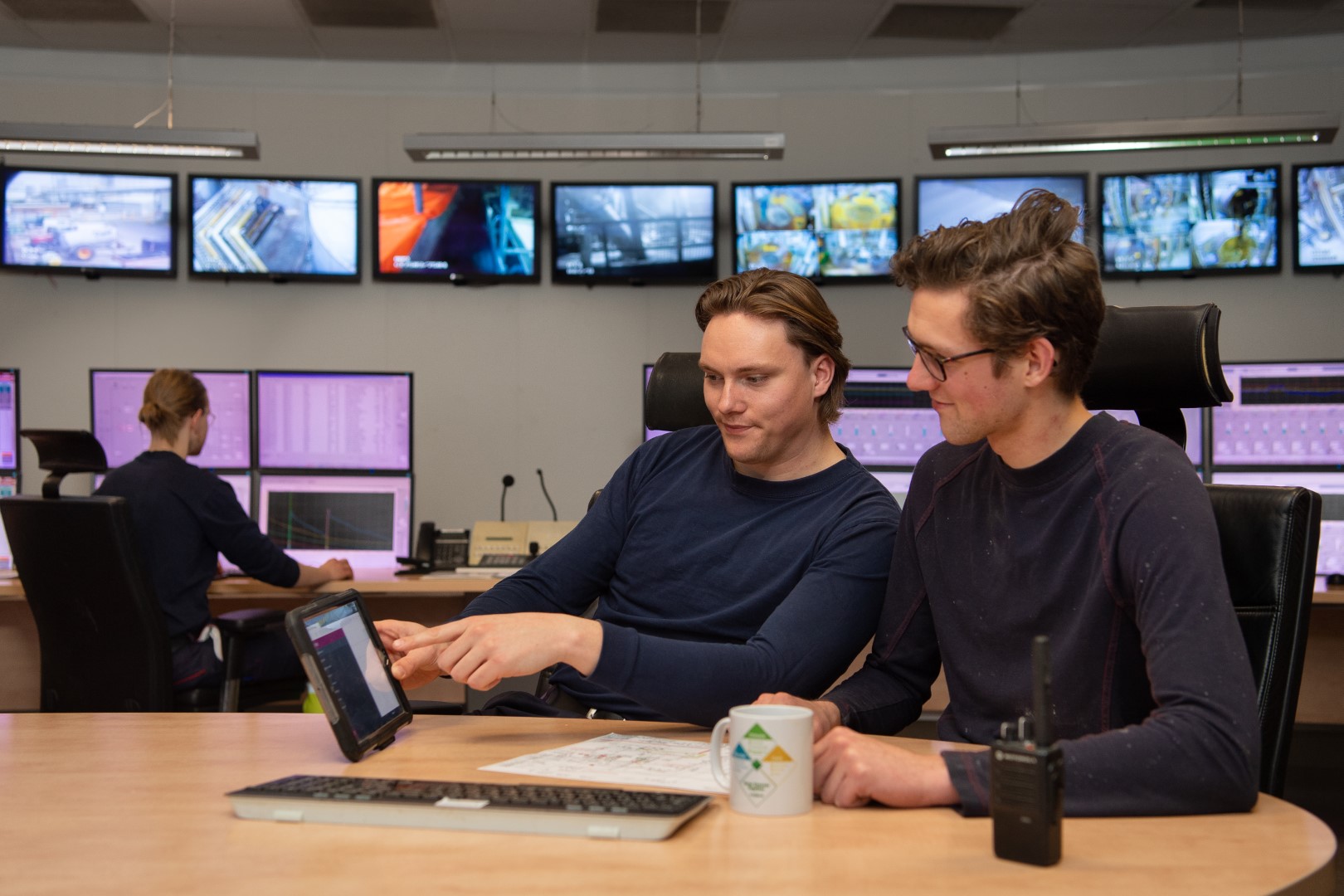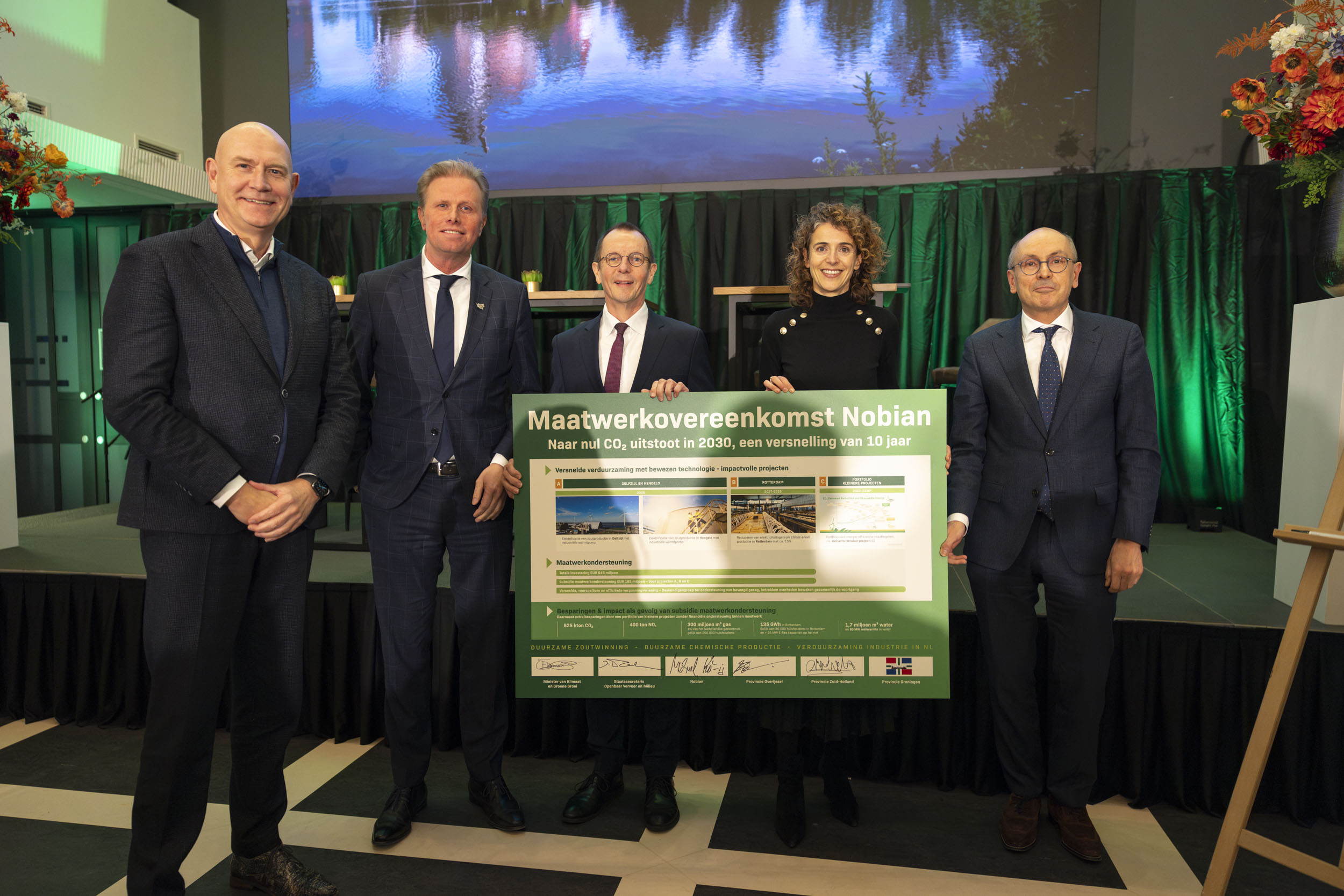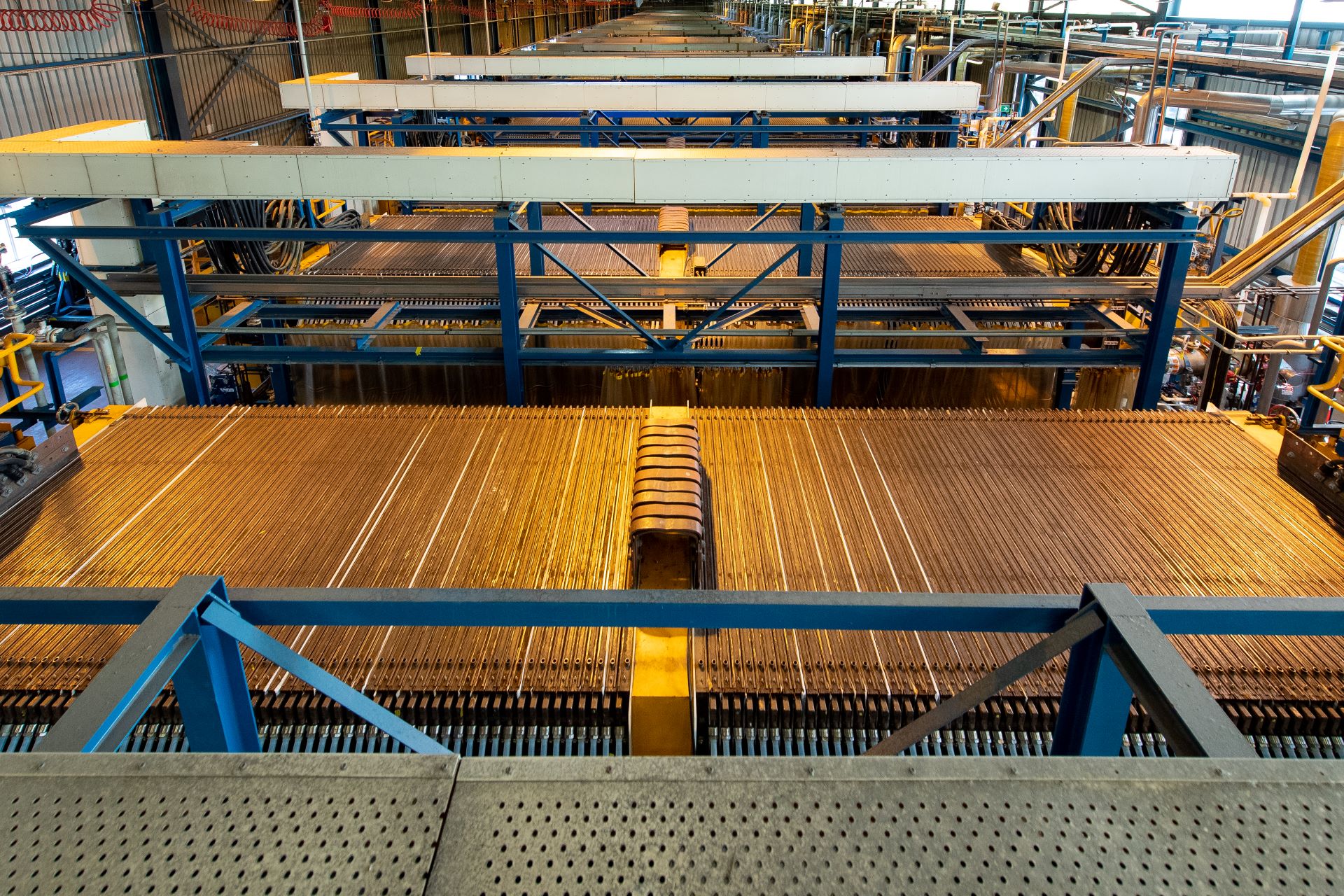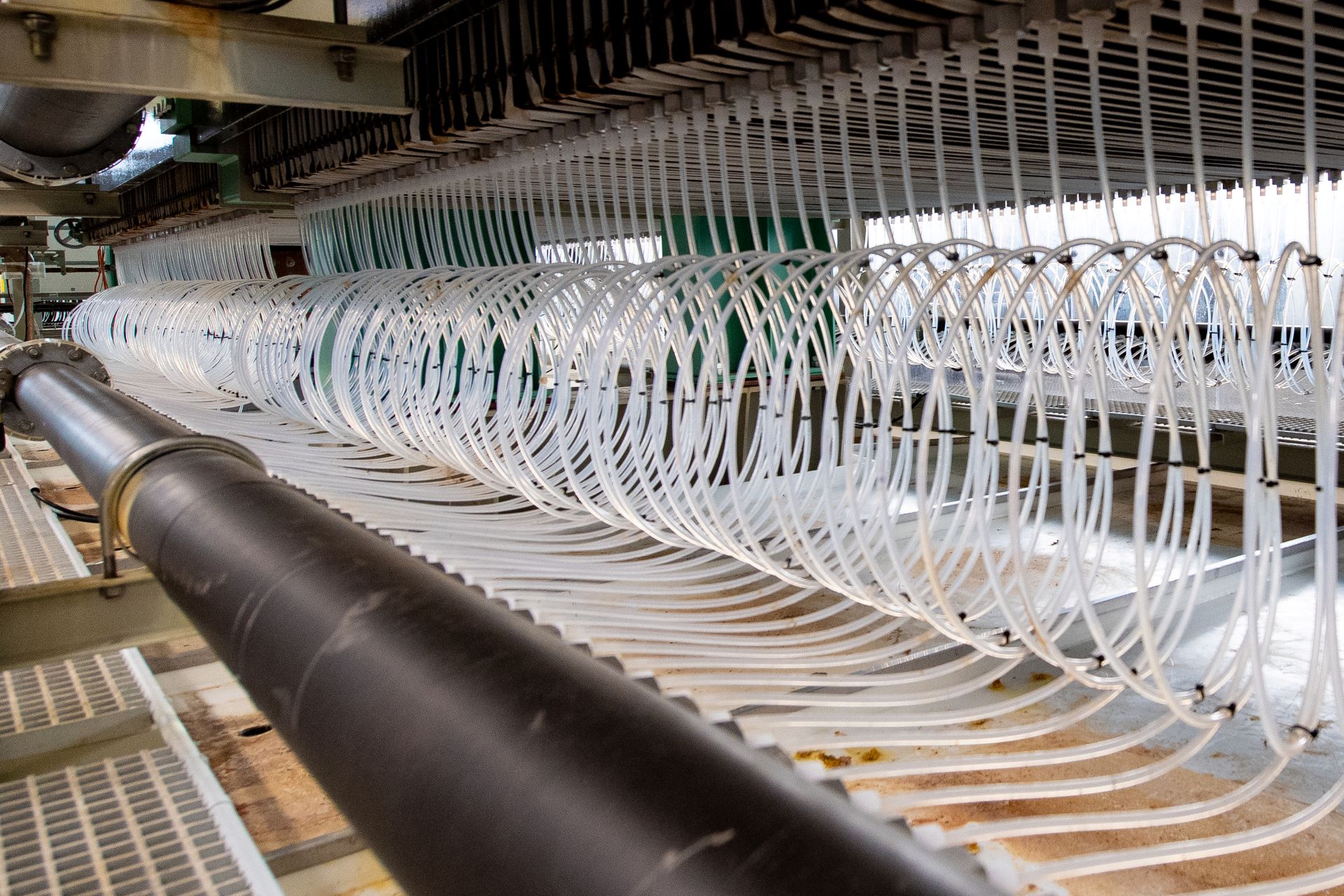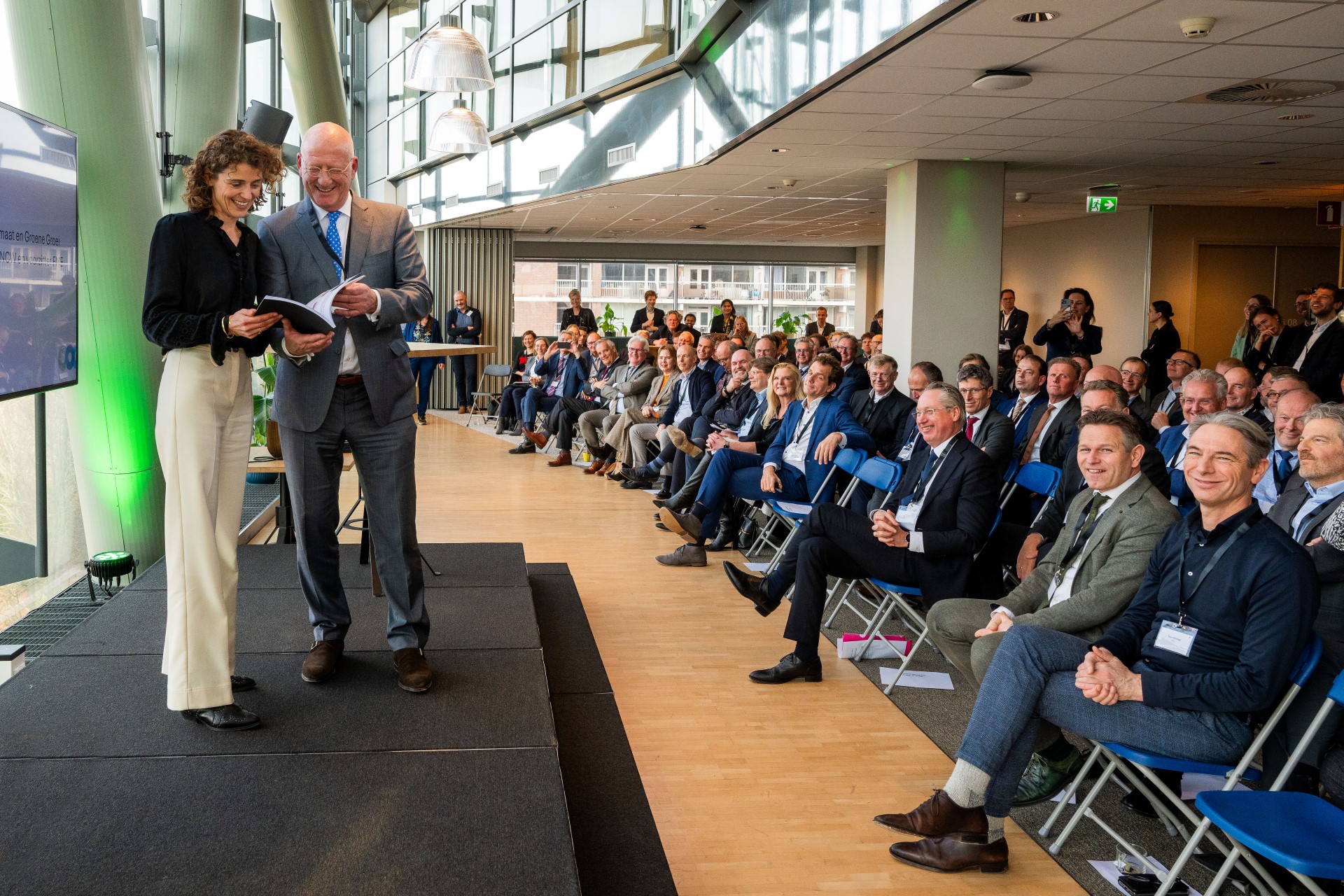Towards green growth and sustainable industry
Dutch Minister Sophie Hermans, for Climate and Green Growth: "A special milestone! Today we signed the first tailor-made agreements with Nobian. This is a big step towards our common goal: making the Netherlands more sustainable, preserving jobs and strengthening industry. With the tailor-made approach, we encourage companies to become more sustainable, to innovate, and to grow green faster. Nobian shows what is possible: carbon-neutral production in 2030, well ahead of the goals of the Dutch Climate Agreement. This process has provided us with valuable insights that will help in concluding similar agreements with other companies. Our industry is important for the Dutch economy: it provides jobs, makes our products, and reduces our dependence on foreign countries. But industry needs to be cleaner. Sustainability is the future - for companies and the Netherlands. With tailor-made solutions, we show that sustainability can and must happen here. This is how we build a strong and sustainable industry together.”
Carbon Savings and Environmental Impact
Nobian produces and processes salt, which is a strategic raw material for the production of essential chemicals. These chemicals are indispensable to manufacture everyday products such as textiles, pharmaceuticals, and disinfectants, as well as products crucial to the energy transition, such as insulation materials, batteries, electric vehicles, wind turbines and solar panels. The company has the ambition to be one of the most sustainable chemical companies in the EU.
The binding tailor-made agreements include the following:
- The gas-fired evaporation plants for salt production in Hengelo and Delfzijl will be replaced by electric-powered industrial heat pumps. In addition, Nobian is accelerating the replacement of the electrolysis capacity for chlorine production in Rotterdam with the latest technology. A circular project to recover salt from residual streams is also part of the agreement.
- Annual carbon emissions will be reduced by more than 0.5 million tons of CO₂ compared to 2020. Most of this is additional to the Dutch climate agreement targets.
- Nitrogen emissions will be reduced by approximately 400 tons. Nobian's annual nitrogen emissions will be close to zero by 2030.
- Annual gas consumption will be reduced by about 300 million m³ compared to 2020, 1% of Dutch gas consumption, equivalent to the consumption of about 250,000 households.
- Annual electricity consumption for chlorine production in Rotterdam will decrease by 135 GWh compared to 2020, equivalent to about 50,000 households. The energy savings also create 25 MW of additional capacity for Nobian to enable more flexible production, helping to balance the grid and reduce congestion. Electricity savings also create space for other parties on the grid to become more sustainable.
- Together, the projects are expected to deliver water savings of 1.7 million m³ and a 90MW reduction in heat loss.
- In addition to the signed agreement, Nobian will, as outlined in the JLoI, continue to cooperate with the government in the development of underground energy storage in salt caverns, as an important part of the energy transition and the operation of the hydrogen backbone.
Tailor-made Agreements
To implement the major sustainability projects within the tailor-made agreements faster and economically sound, government support (financial and on preconditions) is needed. In addition to Nobian's own investment of 460 million euros, the government will contribute up to 185 million euros in subsidies. The total combined investment is €645 million. In addition to financial support, the government has also committed to removing bottlenecks to sustainability. Cooperation with the provinces, the environmental services and the grid operators will be further intensified, for example, with regard to licensing and the necessary energy infrastructure. The tailor-made agreements and related projects are important for the provinces concerned, Overijssel, Groningen and South Holland, as they both make local industry more sustainable and promote local economic growth and employment.
Towards green growth and sustainable industry
State Secretary Jansen (Public Transport and Environment): "I welcome this first tailor-made agreement. The agreement between Nobian and the government will contribute to a clean and healthy living environment. With concrete measures to reduce CO2 emissions, the emission of pollutants into the air and surface water and the thermal pollution of surface water will also be significantly reduced. A cleaner industry in the Netherlands, that is what we are aiming for. This first tailor-made agreement is an important step in that direction. As far as I am concerned, it tastes like more."
Green chemistry
Michael Koenig, CEO of Nobian: ‘The signing of this tailor-made agreement is a true milestone for our company and for the Dutch government. That we can now start with this, is important for the success of the energy transition and is fully in line with our Grow Greener Together philosophy. As the largest producer of chemical transformation salt in Western Europe, Nobian extracts 90% of pure salt in the Netherlands, which plays a crucial role in the Dutch and European economy to produce essential chemicals and materials. Today, we underscore our ambition to be one of the most sustainable chemical companies in Europe and reduce our emissions to zero by 2030. I can only be very proud of all colleagues and partners who have contributed to enabling us to sign these important agreements today."
Process and next steps
The signing of the binding tailor-made agreement was preceded by a detailed process. The interim steps, the Declaration of Intent (expression of principles) and the Joint Letter of Intent, were made public. The Joint Letter of Intent signed last year paved the way for further negotiations on binding agreements on a project-by-project basis. Marco Waas, Chief Technology and Sustainability Officer at Nobian said: 'These tailor-made agreements enable Nobian to electrify its salt production processes, accelerate reduction targets and achieve significant savings on energy and water usage, among other things. Now that the financing and terms are clear, we can start the execution together with all stakeholders. This is good for society but also provides clarity for our company and our investment agenda. The commitment is to deliver the first project in 2027, with all projects to be completed by 2030. We cannot wait to get started!’
